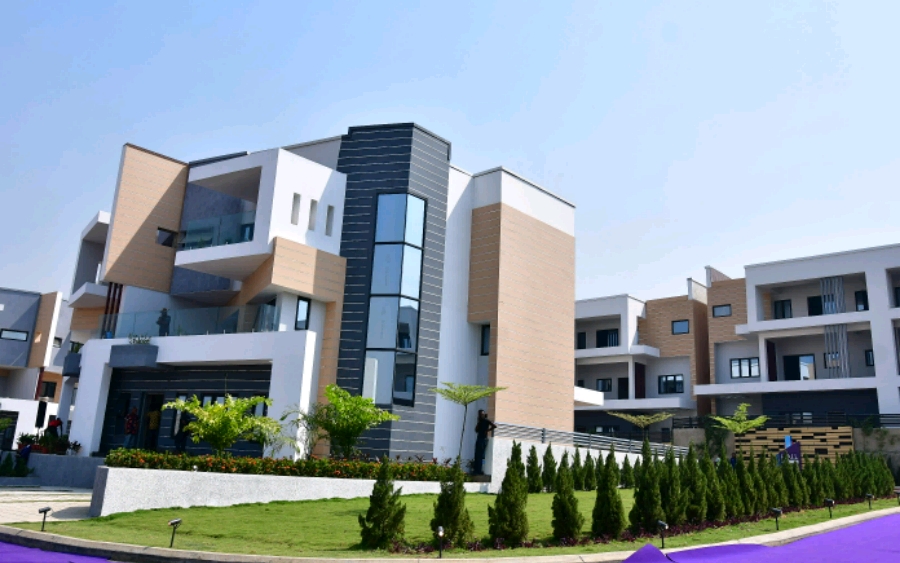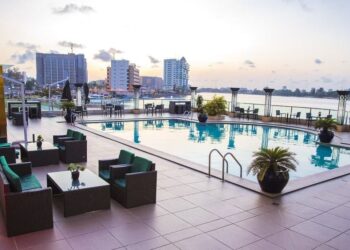It was meant to be a regular end-of-month meeting at a residential estate located in Lekki Phase 1, beside the beach. Residents gathered for their usual monthly meeting and were at the ‘other business’ segment of the agenda when someone spurted out a remark that ignited an uproar in the forum.
To the shock of the Exco members, one of the residents had turned their apartment into a short-stay, breaking the estate bye-laws. The accused resident claimed that it was their only way of surviving amidst the COVID-19 pandemic which had led to a downturn in his regular business. Unknown to other residents, this is not an isolated case in their estate.
Thanks to tech apps like Airbnb, it is now a common feature for most houses that do not deliver the monetary benefits assigned to their income.
The hospitality sector has been one of the hardest hit by the COVID-19 lockdown. Most of the major hotels with 3-4-star ratings have shut down their doors for months, resorting to ancillary services such as laundry and private dining to keep the lights on. But while major hotels scavenge to survive, smaller boutique hotels are having the time of their lives.
(READ MORE:COVID-19: Lagos ramps up measure to smash disease as it begins fumigation)
Hotels without names
Boutique hotels with less than 40 rooms have operated surreptitiously for years, preferring to operate without signboards or brand names, as is the case for their more illustrious majors. For some hotels, they are known to their customers only by the street number. Hotel names like 12, 23, 42 etc., are not uncommon across most major suburbs in Lagos.
This nomenclature for hotels is not surprising to most hospitality experts. They explained to Nairametrics, that most of the hotels were previously residential houses but turned into boutique hotels by their owners, and continue to retain the house number. Some also believe it is a common tactic used to avoid taxes and regulators.
Converting residential apartments into hotels, or short-stays helps owners make more from room rates than they would if the apartments were rented. This business model has now morphed from boutique hotels to short-stay apartments.
The facilities are also designed to give the home-away-from-home feel, as they cater mostly to business travelers, weekenders, groups, pleasure seekers, adventurers, and many who wish to explore life differently, away from their conventional homes.
These lodging options offer a simple alternative to big-name hotel chains, with the provisions of a variety of convenient in-house self-service amenities. Today, more travelers are choosing to book short-term rentals, rather than stay in hotels.
(READ MORE:Estates in Lekki increase electricity tariff to N105/kWh)
How patrons book facilities
For most of these hotels, their booking channels range from word-of-mouth to a simple online Google search. Some of their customers resort to apps like Airbnb, Hotels.ng, or Trip Advisor to make their bookings. Others go directly into the website of managers of these apartments, and select their preferred cities and spaces, view the amenities, and make payments. Once payment is confirmed, they receive an email and SMS notification of their door access code, and Google maps address to the space. After being checked in, guests simply use WhatsApp or text messages to request concierge services, which are available 24/7.
According to an owner of such facility, “The idea was conceived when I found that travelers now want the privacy, functionality, flexibility, and comfort of a high-end home, along with the efficiency of hotel services.”
Olajide Abiola, Co-founder and CEO, Smart Residences Ltd, operating as Gidanka, explained that traditional hotels with their limited spaces, and boring repetition of interior decoration have given rise to the demand for better lodging and accommodation options.
“People want to live like locals in new and fascinating neighborhoods, whenever they travel. At the moment, it is an emerging industry in Nigeria, with little competition,”
“Airbnb represents the only competition, but with limitations in that, quality supply on such home-sharing platform, is like a game of Russian roulette, as there are apartments of little quality and uniqueness,” said Abiola.
According to him, his company works with local developers and realtors to design and take out long leases on spaces in neighborhoods determined to be travelers’ and tourists’ preferences, based on research and data analytics.
(READ MORE:Hotel resorts fully booked as middle-class Nigerians spend big for Valentine’s Day )
How they get funds
A source, who pleaded anonymity, because he was not permitted to talk on behalf of House 23, a short-let apartment in a location in Lagos, told Nairametrics that the owners of the apartment secured loans from some banks (undisclosed), to convert the building to short-let apartment standards.
“Initially, we had challenges with patrons, and that is because the estate management frowned at using the residence for commercial purposes, but the business picked later. Without many publicity tools like signposts or any form of paid adverts, the business has been self-sustaining,” he said.
In the case of Gidanka, which has facilities across four neighborhoods, Abiola said, “We secured N1.07 billion in seed funding, and have been able to lease out properties in four neighborhoods, to provide 86 unique spaces across the Abuja cityscape in the last seven months,”
“We have hosted travelers from over 12 countries, and have paid 65% of the loan. Interestingly, in the face of the COVID-19 pandemic, our spaces have seen steady patronage, because of the excellent service reputation earned within the short period. Initially, there was a one-week dip in occupancy rate because of the pandemic, but as the chaos ebbed, the demand normalized, as people sought living spaces that felt like home,”
“There has been steady uptake, and about 30% to 70% month-on-month growth since January 2020, when an additional 28 space units were added. The revenue is steady, ticking up and good,”
“Revenues are made from nightly, weekly, and monthly room rates. We will be cash flow positive before the 4th quarter of 2020, even in the face of COVID-19. Out of the debt raised, 65% has been offset within seven months, which is five months ahead of the moratorium.”
(READ MORE:COVID-19: Hotels.ng partners others to provide self-isolation centres for Nigerians)
Highly Profitable
The rise of short-stay apartments and boutique hotels also points to their profitable business models and financial viability. An operator in a hotel located on Victoria Island informed Nairametrics that apart from the initial one-month lockdown in April, occupancy rates have picked up to pre-pandemic levels.
“Most of our rooms are fully booked sometimes for days,” he explained, preferring to be simply called Femi.
In another hotel in Lekki, the owner told Nairametrics that his major challenge was not having enough rooms. “I wish I could purchase the adjacent building and expand my operations. I lose money I would have easily earned because I have to refer my customers to other hotels,” he remarked.
Sometimes, customers book a day or two ahead just to be assured of a room whenever they need one. Asked who their typical customers are, he maintained that they were mostly young single men with laptops, “I don’t know if they are Yahoo guys, but most of them seem decent and could pass for tech geeks. We also have a lot of married men as customers, even though they hardly sleepover.”
In contrast to the smaller boutique hotels, bigger hotels have all shut down and despite opening recently, still operate skeletally, as Nigerians gradually ease back to work. Most of the hotels are also suffering from a lack of banqueting and physical meetings, which are two major drivers of room occupancy rates.
(READ MORE:Lagos seals off church, others in Surulere, moves against illegal conversion of open spaces)
Challenges
Like other real estates, short-let apartments also have their challenges, ranging from reputation management to irregular power supply.
“When one offers such high quality, efficient, and high standard services that we are offer in an environment where consumers have lost confidence, restoring such can be an uphill task. Therefore, we sometimes have prospective guests, who want to carry out an inspection, just to be sure that the pictures and the amenities on the website are not too good to be true,” Abiola stated.
On the issue of irregular power supply, he said, “People want to be sure they will have continuous power supply at all of our spaces. Most times, we must deliver comfort through alternative power sources.”
In all, there appears to be no barrier to the growth of short-term home rentals. The regulation is still business-friendly because it remains a developing and widely untapped industry.






















